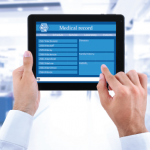Triage dictates how we allocate care, from battlefields and emergencies to the substantially less dramatic environment of the inbox. Its practice is guided by the principle of justice. Traditionally, distributive justice in medical ethics refers to allocation of material resources, from organs to imaging to medications.5 Amid our shrinking workforce, clinician work hours should be considered an equally limited resource.
Given this, should we abide by the unwritten mandate to respond to non-urgent patient electronic communication requests without a fee? Might this unequally divert care to the more vocal, but possibly less sick, patient and away from the possibly sicker, although technologically less inclined? This clearly is antithetical to triage. Despite attempts to maximize beneficence in dutifully managing our inbox requests, squandering time on one task inevitably takes away from another. Consideration of these other tasks is critical.
Billing Considerations
Clearly, when formulating billing guidelines, care must be taken to prevent another scenario: Deterring urgent and critical communication from our patients. The guidelines should also avoid impeding the tasks that patient portals streamline, such as scheduling appointments and requesting appropriate and routine medication refills. By following a triage-based approach, the needs of the patient, the time of the clinician and health equity concerns could be balanced.
Perhaps, as some models have already espoused, emails about simple matters, such as prescription refills, simple follow-up care questions and scheduling of appointments could be free of charge.
Alternatively, messages regarding new medical issues, changes in symptoms for chronic conditions and consideration of medication changes could include a charge to recognize the additional time and effort required of the clinician.
To minimize the potential for worsening healthcare inequity, a charge structure for these services should account for the patient’s ability to pay. For example, those on Medicaid or charity care may be exempt from co-pays. Clinicians themselves could waive fees altogether on a case-by-case basis. (In itself, returning some autonomy to the clinician seems a natural way to improve work satisfaction.)
The concerns that fees would deter healthcare access for critical matters and adversely affect healthcare equity are major arguments against charging for patient messages.
We must pause before we assume patient electronic messages are the remedy for all sources of healthcare access inequity. Okobi et al. noted discrepancies in electronic medical record use among populations of rural vs. urban areas, with lower rates of internet access and use of digital health technology for communicating with the healthcare system among rural populations.6


